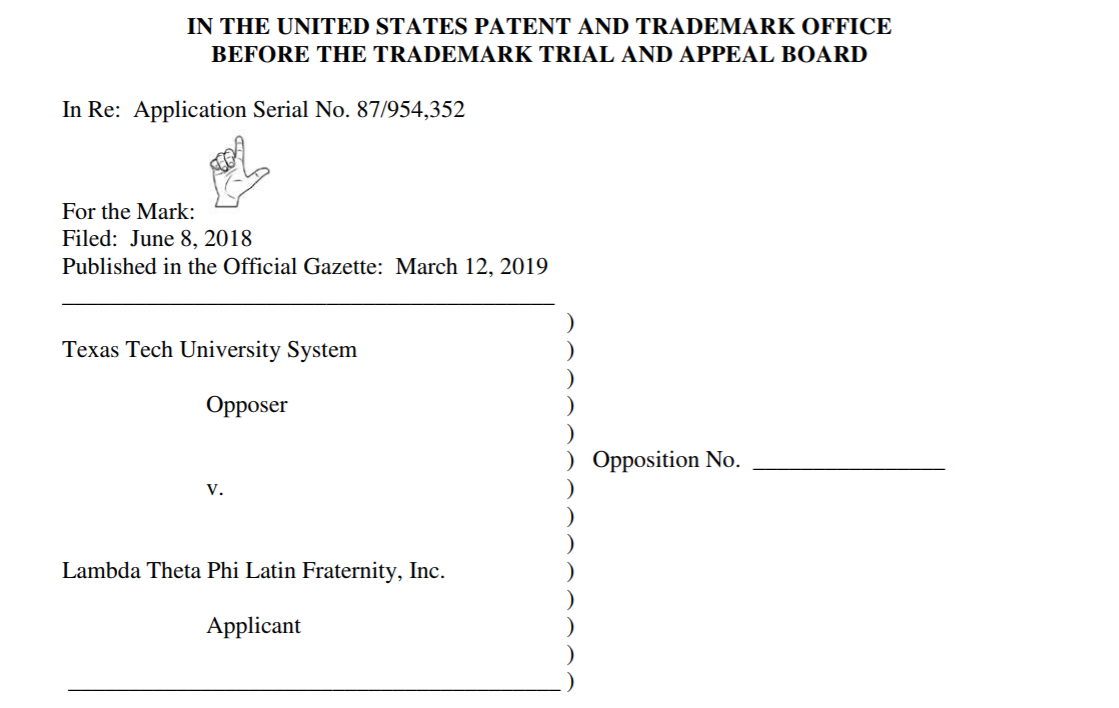“Guns Up” is a slogan and hand signal used by Texas Tech University, originally as a way to counter the “Hook ’em Horns” symbol shown by the Texas Longhorns. It has grown in prominence to the point that the signal is often used as a victory sign at Texas Tech athletic events.

Now, that slogan and hand signal is the subject of a trademark opposition proceeding pending with the Trademark Trial and Appeal Board. The opposition was filed on April 11 by Texas Tech against Lambda Theta Phi Latin Fraternity, which has an application pending to register the hand signal. That application seeks registration of the design mark for use in association with application services, namely, organizing chapters of a fraternity and promoting the interests of the members thereof.
Texas Tech has cited to its registration of the word mark “Guns Up” for use with the sale of apparel as grounds for its opposition filing. It also claims to have common law protection surrounding the hand mark made by extending the index finger outward while extending the thumb upward and tucking in the middle, little and fourth fingers to form a gun.
There is a serious question to be asked as to whether the relevant consumer will be confused as to some association between Lambda Theta Phi Latin Fraternity and Texas Tech through the use of the at issue mark. While Texas Tech points out that the fraternity has a chapter at its school, it seems doubtful that anyone would come to the conclusion that there is an association between the fraternity and Texas Tech other than that the university may sanction the fraternity’s presence on campus.
Additionally, this case shows why it is important for individuals and entities to register their valuable trademarks. Texas Tech is heavily relying on common law trademark claims when it would have been much easier to rest on valid trademark registrations to convince the Trademark Trial and Appeal Board of ownership rights to the mark. This is especially true when dealing with the classification of services at issue here, as opposed to the more common designation of apparel.

